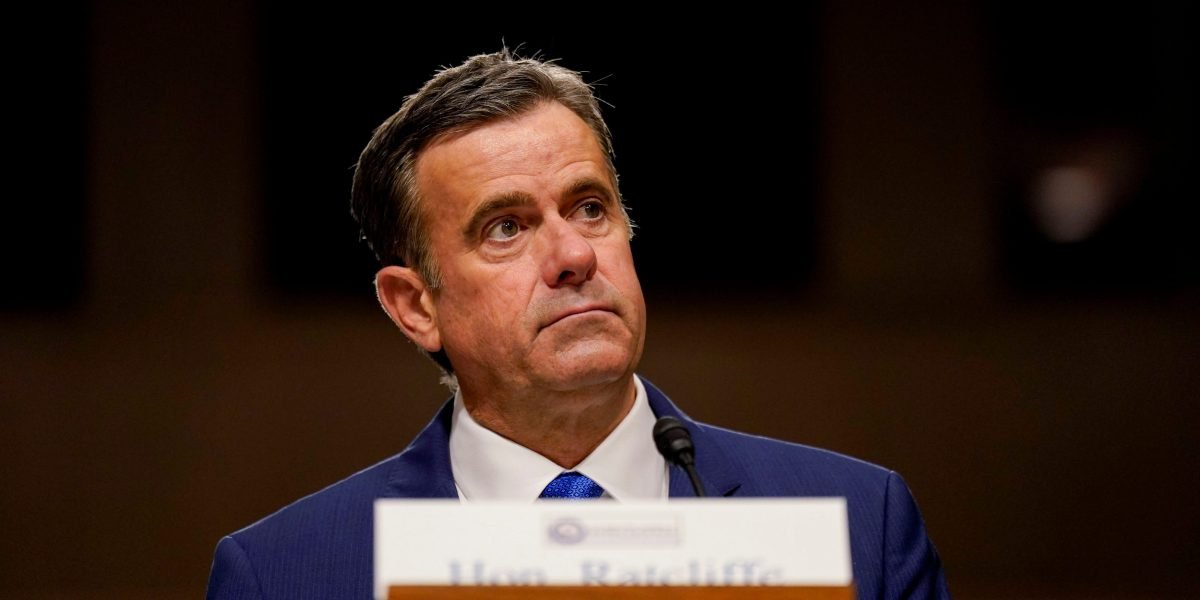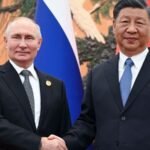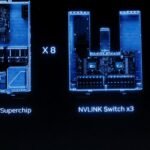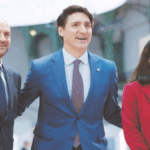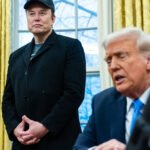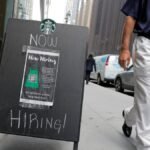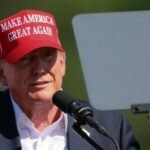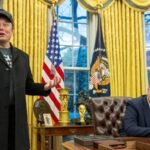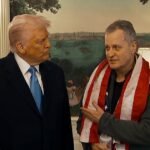Designated CIA Director John Ratcliffe has drawn criticism for his role in revealing intelligence information that helped Donald Trump during the 2020 election and for the slow release of a report on the murder of Saudi journalist Jamal Khashoggi.
What has been overlooked in Ratcliffe’s momentum toward Thursday’s confirmation vote, however, are his ties to the artificial intelligence industry that is vying for billions of dollars in government contracts during a Trump presidency.
Ratcliffe’s financial disclosures show that in the short years since his tour of duty in Trump’s first cabinet, he has amassed thousands of shares in artificial intelligence companies by serving on their advisory boards. Those gigs involved a host of potential conflicts of interest, including an oil and gas firm, venture capital firms, and a private equity firm.
Democrats haven’t made noise about Ratcliffe’s visit through the revolving door. One progressive critic said that could be explained by the fact that former intelligence community leaders under Democratic presidents have similar resumes — but that shouldn’t mean that Ratcliffe Get a free pass.
“Unfortunately, this is standard corruption, which is why his nomination is so uncontroversial,” said Jeff Hauser, executive director of the Revolving Door Project. “It’s not perfect, but it’s standard.”
As is customary for public officials, Ratcliffe has pledged to avoid “any real or apparent conflict of interest”, by selling stock and recusing himself from any matter in which he had a personal stake. For Hauser, however, that doesn’t erase the risk that his ties to industry will influence his judgment about a technology that many critics say has yet to be proven. .
Ratcliffe and the Trump administration did not respond to requests for comment.
A gag machine
Ratcliffe was a former Justice Department prosecutor and small-town mayor when he ran in 2014 to represent a congressional district outside Dallas, besting a 91-year-old World War II veteran. As a tea party challenger in his primary.
Trump first tried to tap him as director of national intelligence in 2019, rescinding the nomination under protest that Ratcliffe was too inexperienced, before renominating him the following year. Under low opposition. As DNI, Ratcliffe was criticized for releasing a report on Russian intelligence in the waning days of the 2020 presidential election. Designed to help Trump win.
His resume for his first confirmation process listed only a few prior positions outside of government. Documents submitted by Ratcliffe. Office of Government Ethics The last month, however, paints a picture of a man who has since held an impressive array of gigs.
Between a smorgasbord of consultantships, fellowships, and advisory roles, Ratcliffe earned $2.2 million through 2021, when he left the government.
He took home $180,000 as co-chair of the Center for American Security at the America First Policy Institute, which served as a haven for Trump officials-in-waiting during the Biden presidency, and another $80,000 in inheritance. As a fellow of the Foundation, which developed Project 2025.
In six months last year alone, he earned $80,000 in consulting fees from Blackstone, a large private equity firm. whose CEO supports Trump.With another $15,000 to $50,000 in bills owed to the company by the Dec. 18 filing.
He also banked $500,000 in consulting fees from oil and gas pipeline company US Trinity Energy Services and a $25,000 honorarium from the anti-Muslim think tank Gatestone Institute.
AI Gold Mine
The industry that may overlap most with Ratcliffe’s portfolio as CIA director, however, is artificial intelligence. Ratcliffe’s disclosure lists all three artificial intelligence companies that have already received defense contracts.
As director of the CIA, Ratcliffe would direct a Broad and Classified “Black Budget” For an agency that often relies on contractors to perform essential tasks. The agency is looking to rapidly expand its AI capabilities. The chatbot is designed to emulate global leaders. On a potentially valuable cloud computing contract Tens of billions of dollars.
For consulting work beginning in March 2021 and continuing until his nomination, Ratcliffe said he serves on the advisory boards of Silicon Valley company Latent AI, Los Angeles-based Arctop Inc., and Dallas-based defense tech company Shield AI. Got stock options to execute.
Latent makes AI software. It says It can help the Navy speed up underwater threat detection.
In an interview with The Intercept, Latent AI CEO Jaggis Kandasamy praised Ratcliffe’s work as an adviser to the company and said he would do well at the CIA. According to the CEO, during his tenure with Latent AI, Ratcliffe was not involved in directly communicating with Congress or the executive branch, instead providing big-picture advice on strategic priorities.
“We were approached by a number of foreign governments and things, and I always ran from John’s side to make sure that, from a policy standpoint, we were on the right side,” Kandasamy said.
Kandasamy said his company has not sought contracts with the CIA, but declined to comment on whether it has sought to work with other parts of the intelligence community. .
Archtop, which describes itself as an “intelligence company.” Received a military contract in September Real-time decoding of brain activity in Air Force cadets undergoing training simulations. Shield AI is developing a product called Hivemind, which it claims will “enable swarms of drones and aircraft to operate autonomously without GPS, communications, or a pilot.” The company won a contract from the Air Force worth up to $60 million through 2022. According to a report. None of these companies responded to requests for comment.
In January 14 letter To a CIA ethics official, Ratcliffe said he would sell the rest of his stock in artificial intelligence companies and promised not to make any decisions that would affect them unless he was in writing. Morality does not exempt.
Still, Hauser said Ratcliffe’s AI portfolio raises concerns about the nominee’s ability to influence CIA contracting decisions.
“The more you’re tied into artificial intelligence companies, the more optimistic you become about the applicability of AI rather than a more neutral figure,” Hauser said. “If you’re an AI company and you can tell people, ‘I have a CIA contract,’ I think that’s great marketing. I think they’re just incredibly valuable, these contracts, both directly and indirectly. For direct cash and legal functions.”
Other questions
Ratcliffe was initially slated for a full Senate floor vote on Tuesday before objections from Democrats delayed his confirmation. Pointing to the debate over the release of classified information in 2020, Sen. Chris Murphy, D-Conn., said some Democrats were concerned that Ratcliffe Politicized intelligence work.
Still, Ratcliffe’s nomination has fueled speculation that he could garner more Democratic votes than Trump’s more controversial national security nominees, including Tulsi Gabbard for director of national intelligence or Kash Patel for FBI director. In a committee vote Monday, five members of the Democratic caucus backed him.
During his confirmation hearing, Ratcliffe tried to downplay the idea that he would act as a lackey for Trump, calling it “absolutely necessary” for the CIA director to be “apolitical.”
Those assurances came from Sen. Ron Wyden, D-Ore. failed to win over Co., a longtime dissenting voice on surveillance and national security issues. Speaking in the Senate on Tuesday, He criticized Ratcliffe for blocking the release of a congressionally mandated report into the role of Saudi Crown Prince Mohammed bin Salman in the murder of journalist Jamal Khashoggi. Wyden said Ratcliffe falsely claimed during his confirmation process this year that despite telling members of Congress in 2020 that he had completed the process and there was nothing he could release. His rating review was not completed when he left office.
“If John Ratcliffe is willing to make representations to Congress that contradict what’s in the public record,” Wyden said, “imagine how easy it would be for him to misrepresent classified matters behind the veil of secrecy.” It will happen.”
